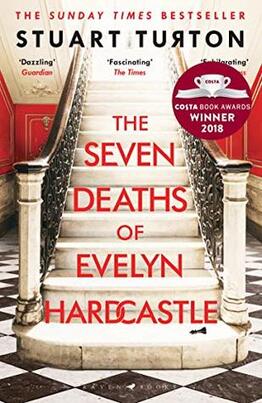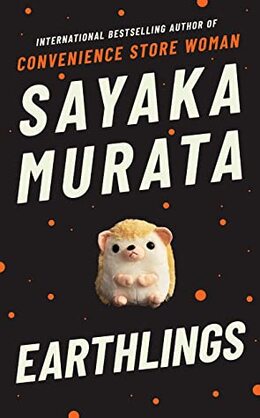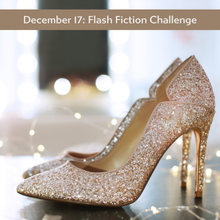The Seven Deaths of Evelyn Hardcastle by Stuart Turton
If Aiden Bishop can find her killer, he’ll escape the place he’s been trapped within for years. But it’s not only the lies and deceit of his fellow guests that thwart his investigations: every morning he wakes in the body of a different man.
Stuart Turton’s debut novel is certainly different: The Time Traveler’s Wife meets Agatha Christie meets Groundhog Day. The book that won the 2018 Costa Book Award is certainly clever, and I enjoyed it once I accepted the twists and turns and multiple characters would leave me as confused as Aiden each time I picked it up.
Other members of my book group found it more frustrating but we were as diligent as Aiden in our search for the psychological issues beneath a story that’s less about people than a game of three-dimensional chess. We detected threads of psychosis and psychopathy, and ageing, addiction and abuse. There were questions of how it might feel to occupy another’s body – reminiscent of Paula Rawsthorne’s Shell – and the extent to which rehabilitation works. What stood out for me – eventually – was Aiden’s discovery that he could draw on the weaknesses as well as the strengths of his various ‘hosts’, a message often found within psychoanalytic psychotherapy. But at 500 pages, we agreed the time and effort weren’t worth the gains.
Published by Raven Books, an imprint of Bloomsbury publishing, I bought my own copy.
Earthlings by Sayaka Murata translated
by Ginny Tapley Takemori
Two decades later, they meet up at the house where they spent many happy summers. Their grandparents are long dead, the house falling into disrepair. Natsuki is now legally married, to a man more estranged from society than she is. Whereas Natsuki longs to be ‘brainwashed’ into the system she calls the Factory, her husband would rather die.
Living like flatmates, theirs is a marriage of convenience to escape the confines of the parental home. But when their families discover it’s unconsummated, they try to resume control. The hypocrisy of her parents’ disgust at the absence of marital sex isn’t lost on Natsuki. It still hurts that they refused to listen when she tried to tell them about a teacher’s grossly inappropriate behaviour.
Like her justifiably lauded debut, Convenience Store Woman, Earthlings is about the pressures to conform to sometimes crazy societal norms. While I welcome Earthlings’ emphasis on the resulting damage to non-conforming individuals – both Yuu and Natsuki have heard voices since childhood, Natsuki dissociates with out-of-body experiences and all three main characters have some bizarre beliefs – I wasn’t totally convinced.
Knowing little about Japanese culture, I had to take the author’s word for the parents’ getting away with bullying their adult children, but they didn’t come across as real people at any point. I accept that some disturbed parents do arbitrarily praise one child and punish another, and we see their actions only from Natsuki’s point of view, but these seemed two-dimensional. Also, while some readers will find the denouement comic, the folie a trois irritated me.
Thanks to publishers Granta books for my review copy. Overall, I’m afraid, it read as a rushed and disappointing follow-up to an endearing and original debut.
“I can’t. Just like I can’t put a cigarette in someone’s hand.”
My muse rolls her eyes.
“It’s a step away from Chinese foot binding.”
“Doorstep or dance step? You don’t trip over those.”
“It’s a moral issue.”
“Who do you think you are, Mother Teresa? Nobody cares.”
“I care.”
“Some writer, only mentioning things you approve of!”
“Anyway, it’s impractical. She’s a murderer. She needs to run.”
“You nailed the weapon yet?”
“Nails can’t kill without a hammer. She won’t find either at a masked ball.”
“She could wear it.”
“The hammer?”
“The stiletto, idiot! On her feet.”
























 RSS Feed
RSS Feed





















